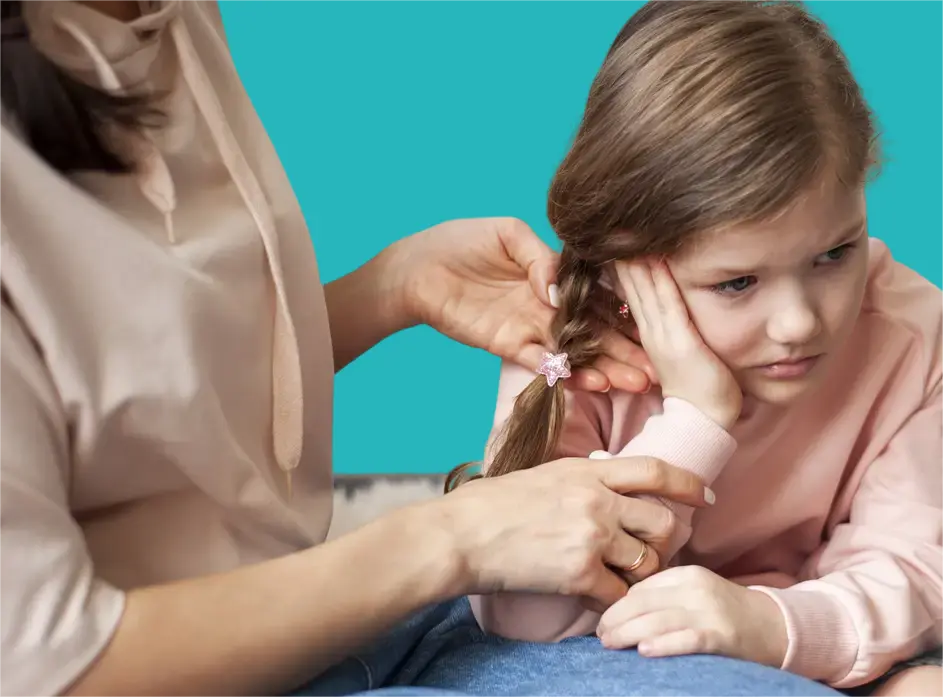Childhood bipolar disorder is a complex mental health condition that significantly affects children's mood and behavior. Children with bipolar disorder alternate between periods of hyperactivity and excitement, and periods of extreme sadness and withdrawal.
Understanding and diagnosing this disorder early can help improve the child's condition and provide appropriate support for them and their family.
What is Childhood Bipolar?
Childhood bipolar disorder is a chronic mental health condition that affects children and adolescents. It is characterized by severe mood swings between episodes of mania (hyperactivity and irritability) and episodes of depression and withdrawal. Symptoms may appear differently in children than in adults, making diagnosis difficult at times.
Causes of Childhood Bipolar

The exact causes of bipolar disorder are unknown, but several factors can cause it, including:
- Genetics, as a family history increases the likelihood of developing it.
- Chemical imbalances in the brain, such as changes in dopamine and serotonin levels.
- Psychological stressors that may affect some children, such as the loss of a parent, for example.
- Chronic sleep disturbances play a significant role in the likelihood of developing bipolar disorder.
How does bipolar disorder manifest in children?
There are some symptoms that indicate that a child has bipolar disorder, including:
- Manic symptoms, such as hyperactivity and energy.
- Impulsiveness or dangerous behavior in the child.
- Lack of sleep or excessive sleep.
- Easily distracted.
- Sadness and crying for no apparent reason.
- Loss of interest in things.
- Feelings of guilt or worthlessness.
Methods for Diagnosing Childhood Bipolar Disorder
Diagnosing bipolar disorder in children requires a thorough evaluation by a specialist, including:
- Interviewing the child and family members with a specialist.
- Reviewing a family history of mental disorders.
- Monitoring behavior over a period of time.
- Ruling out other conditions, such as hyperactivity disorder or depression.
Long-Term Effects of the Disorder
If treatment or follow-up with a specialist is not received, some complications may appear in the child, including:
- Poor academic performance.
- Problems with social relationships.
- Aggressive or dangerous behavior.
- Later substance abuse.
- Suicide risk in cases of severe depression.
Medications for treating childhood bipolar disorder
There are several medications used to treat bipolar disorder in children, including:
- Mood stabilizers such as lithium.
- Antipsychotics such as olanzapine or risperidone.
- Antidepressants.
Important warning: Medications should only be used under the supervision of a qualified psychiatrist.
Therapeutic approaches to support the affected child

Several approaches are available to treat children with bipolar disorder, including:
- Pharmacological treatment, under the supervision of a qualified psychiatrist.
- Psychotherapy, such as cognitive behavioral therapy and family therapy.
- Social skills training.
- Lifestyle regulation through regular sleep and stress reduction.
Can childhood bipolar disorder be prevented?
There are no guaranteed methods for complete prevention, but there are several ways to reduce the risk, including:
- Early monitoring behavior if there is a family history of the disorder.
- Providing a supportive and stable family environment for the child.
- Managing the child's stress.
Seeking psychological help early when abnormal symptoms appear. How does bipolar affect a child?
Childhood bipolar disorder can significantly impact:
- Academic achievement due to inattention or depression.
- Social relationships due to aggressive or withdrawn behavior.
- Self-confidence due to feelings of being different or helpless.
- Family life due to constant tension at home.
The Role of Parents in Supporting Their Child with Bipolar Disorder
Parents have an important role to play in supporting their child with bipolar disorder by:
- Awareness of the nature of the disorder and learning about it.
- Patience and emotional support for the child.
- Commitment to treatment, whether medication or psychological.
- Continuous communication with the school and therapists.
- Do not punish the child for behavior resulting from a manic or depressive episode, but rather contain and guide it.
Article Summary
Childhood bipolar disorder is a severe mood swing that occurs in a child, characterized by hyperactivity and energy, or excessive sadness and depression. This condition results from genetic or chemical factors in the brain, in addition to psychological influences.
Symptoms are clearly evident in changes in mood and behavior, and the child requires a specialist evaluation to diagnose the condition. Treatment includes both medication and psychological aspects, of course, under the supervision of a specialist physician. The family also plays an important role in providing emotional support to the child.